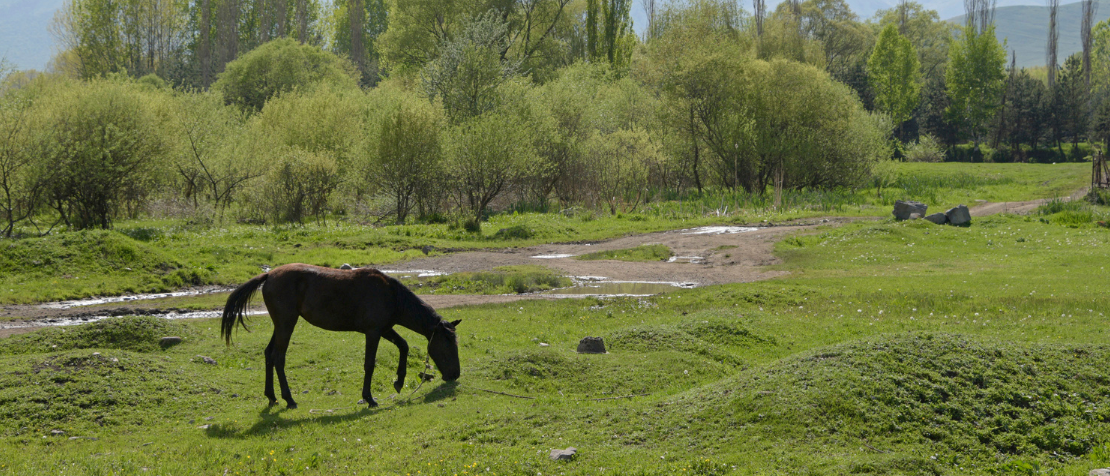Armenia makes progress in building forest resilience
High-level project meeting takes stock of efforts to enhance climate adaptation and green growth in rural areas

©FAO/Karen Minasyan
Forests are critical to Armenia, in part for their importance in mitigating the effects of climate change. As highlighted by Aram Meymaryan, Deputy Minister of Environment of Armenia, at a 29 April meeting for a project to cultivate 5 000 ha of forest in the country, particularly in the northern Lori and southern Syunik regions.
Armenia has made important steps through the project in advancing the country’s reforestation and biodiversity goals. Among other efforts, 126 000 forest tree seedlings were successfully produced in 2024 in regional nurseries to support afforestation activities across the targeted areas. Preparations for the 2025 planting season are already well underway, with 548 184 seedlings currently being grown.
The work is ongoing under a project for improved forest resilience in Armenia through enhancing adaptation and rural green growth via mitigation.
The 29 April meeting in Yerevan served as a platform for technical discussions and as an opportunity to share the key achievements and tangible results that mark an important step forward in sustainable forest management and climate resilience. Also at the meeting, Deputy Minister of Environment Ara Mkrtchyan formally assumed chairmanship of the Project Steering Committee.
Funded primarily by the Green Climate Fund (GCF), the project leverages resources and expertise from other actors, including the Government of Armenia, the Austrian Development Agency, the Autonomous Province of Bolzano (Italy), World Wildlife Fund for Nature Armenia, and the Food and Agriculture Organization of the United Nations (FAO). FAO is realizing the project goals together with the Environmental Project Implementation Unit under the Armenia Ministry of Environment.
In his remarks at the meeting, Raimund Jehle, the FAO Representative in Armenia, expressed his gratitude to the project’s financial partners and co-financiers for their continued support. He also underscored the strong and productive collaboration with the Environmental Project Implementation Unit (EPIU), FAO’s implementing partner, in advancing the project’s objectives.
In addition to its reforestation work, the project has made progress in a national forest inventory as a critical initiative for generating valuable data to assess forest health, guide sustainable forest use and support evidence-based policymaking. To date, 264 plots have been surveyed, representing 83.4 percent of the planned fieldwork for the first cycle of the inventory.
Armenia, in line with its commitment to a greener and more efficient energy future, has adopted four national standards on energy efficiency, aimed at improving practices in both the public and private sectors. Vocational schools in Kajaran, Vanadzor and Alaverdi have been supported with welding equipment to enhance training in energy-efficient technologies, preparing the next generation of technical professionals.
The 29 April Steering Committee meeting facilitated an open exchange on implementation progress, enabling participants to critically assess challenges, review key achievements and identify actionable steps to further enhance the project’s effectiveness and impact in the upcoming year.
